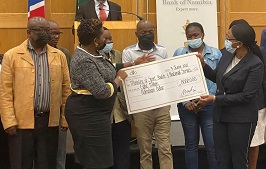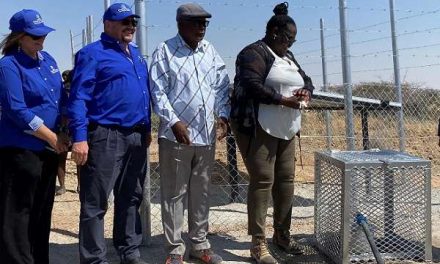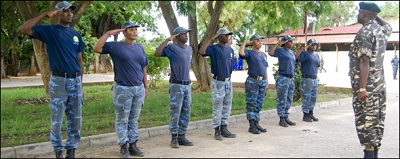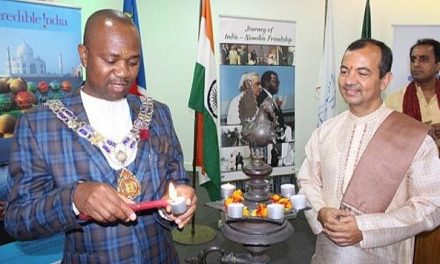
N≠a Jaqna Conservancy restarts community consultations while complying with social distancing, sanitation requirements

In March, a European Union funded conservancy governance project was started in the San run N≠a Jaqna Conservancy. As the conservancy was about to start visiting villages and consulting with their members as part of the project, the COVID-19 nationwide shut-down happened and the village meetings were put on hold.
However, earlier this month as lock down restrictions began to ease, the N≠a Jaqna Conservancy management team re-started its community consultations, while ensuring that they comply with social distancing and sanitation requirements.
COVID-19 cannot and wasn’t going to indefinitely block the community consultation and engagement, they are simply too important. Maintaining good health in the communities is equally as important and that’s why the consultations took on a slightly different look and feel.
The village meetings are part of the preparation for the N≠a Jaqna Conservancy Annual General Meetings of its members, but are also being used as an opportunity to discuss governance and communication with the villages. The project is taking a Human Rights based approach to improving governance in the area, hiring a local San woman, Kileni Fernando, to speak with the community and gather their views on governance and how to improve it.
Conservancies often have significant communication issues because of their remoteness and lack of communication infrastructure. Adding to this challenge are the significant transport costs as they try to engage their dispersed members. This is particularly true of N≠a Jaqna Conservancy where its 2000 members are distributed throughout the 9,000km² of the conservancy.
So far the community consultations have brought up topics such illegal fencing, illegal grazing and the need for better maintenance of water infrastructure. Also the perception of, and actual lack of Government support for the conservancies. People value the conservancy and believe they would be a lot worse off without it. They appreciate the right it has given them over the land and resources and the benefits it provides in terms of funeral support and additional school food.
All relevant issues and points raised will be collated and collective solutions sought where possible. Everyone has a voice and each voice deserves to be heard.











































